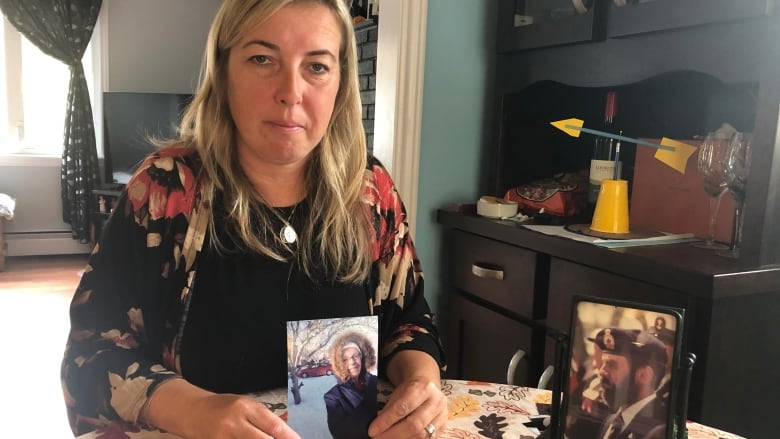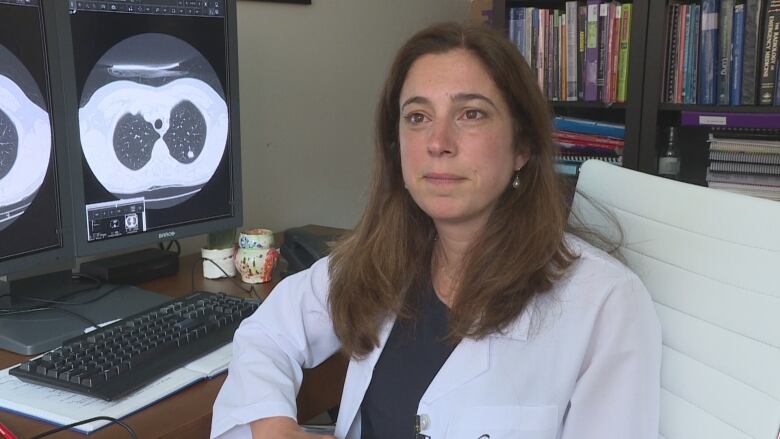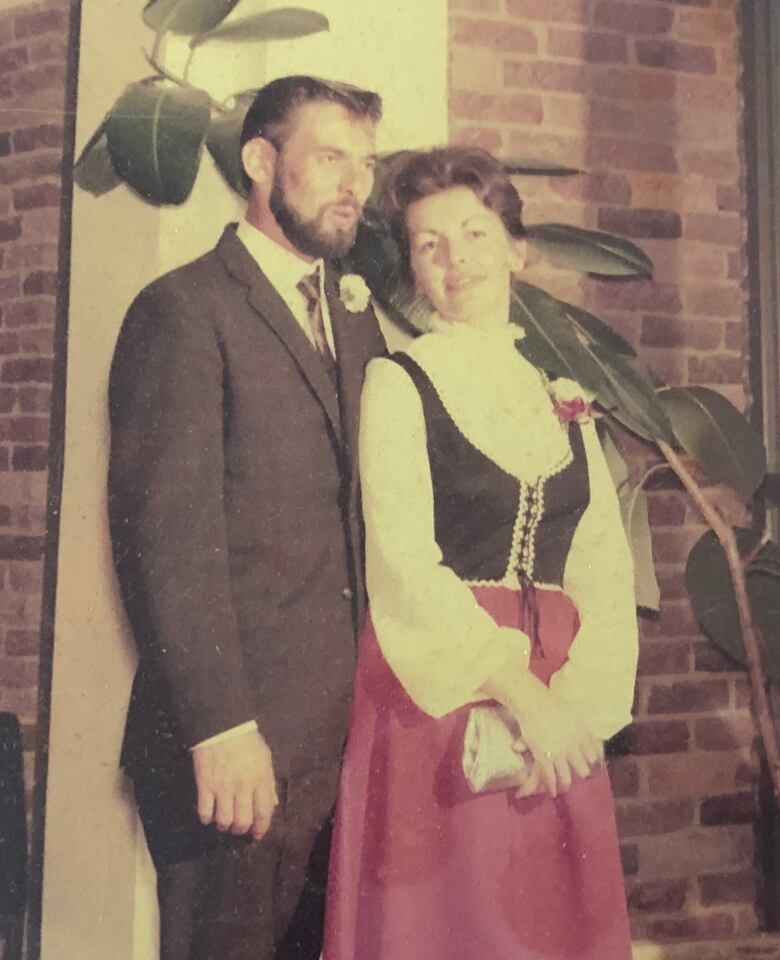'A death sentence:' N.S. woman wants lung cancer screening after losing parents
Jennifer Roy believes lung cancers are treated differently because they're often connected to smoking

One afternoon in January, Lorraine Chase took the bus to the hospital for a chest X-ray.
The 76-year-old woman had pneumonia the previous summer, and her cough wouldn't go away. The next day, Chase and her daughter, Jennifer Roy, went to get the results from a doctor.
They were shocked to hear it was likely lung cancer.
"We went for an appointment and we never left. It was three weeks later and she was gone," said Roy of her mother's death in February of this year.
This was Roy's second loss to the disease. Her father, Gilbert Chase, died in June of 2002 at the age of 62, six months after his diagnosis.
"It's drastically changed me. I don't have parents anymore. That is because of something that is so silent. It's a silent killer," saidRoy.
'It's so prevalent'
Roy is now determined to prevent other families from sharing similar stories. She's starting a campaign to establish an early detection program in Nova Scotia, something she vowed to do as she watched her mother take her last breaths.
"It's so prevalent," she said. "Whenever I heard somebody had lung cancer or potentially had lung cancer, in my mind I'm like, 'It's just a death sentence.'"
About 1,000 people in Nova Scotiaare diagnosed with lung cancer each year. Like in Chase's case, it's often diagnosed in its end stages.

Four out of five of those patients die within five years, according to Halifax radiologist Dr. Daria Manos, who is also pushing for a pre-screening program.
Roy is now trying to meet with any politician who will listen. She believes lung screening hasn't happened yet because the disease is often connected to smoking and there is stigma attached to it.
But she said with vaping now becoming popular among youth, a new generation could benefit from early detection.
"If this was breast cancer 10, 15, 20 years ago when it was killing women, what's the difference between then and now? Is it because people smoked? Does that mean that they are choosing to die? Back when my parents were young, that's what everybody did," said Roy.
The idea of an early detection program isn't out of left field. Lung screening was formally proposed to the Nova Scotia Health Authority in 2015 by a group of its staff, including Manos.
Last year, the health authority said it was closely watching models in Ontario and Alberta to learn best practices. But setting up a program would include establishing equipment, facilities and specialists.
The health authority said Wednesday thatwork is ongoing.

For Roy, it's a valuable investment that would save the health-care system money.Her mother spent three weeks in intensive care, having a number of tests right before she died.
Roy said her mother actually had an X-ray three years earlier on her ribs. Asmall spot could be seen on her lungs at that time.
"They weren't looking for it though. They were looking for the ribs. It just showed up," Roy said. "The outcome could have been totally different for us and for her."












_(720p).jpg)


 OFFICIAL HD MUSIC VIDEO.jpg)
.jpg)



























































































